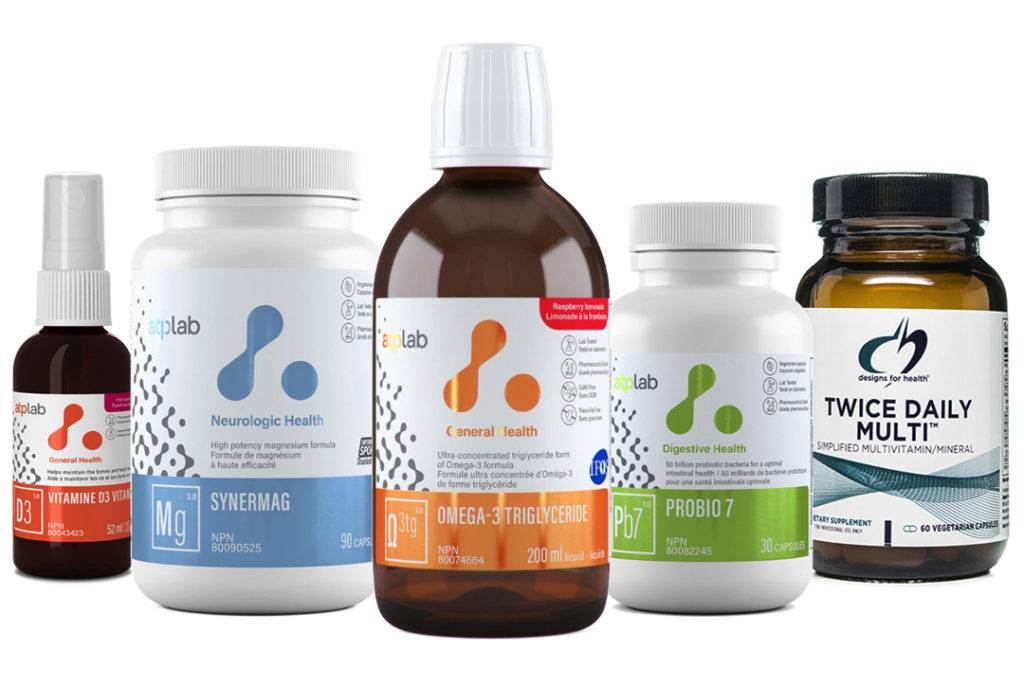
Menopause is a transformative phase in a woman’s life that comes with challenges. Amidst the physical and emotional changes, magnesium is an often-overlooked mineral.
In this blog post, I’ll explore why magnesium is a vital ally for women navigating the intricate landscape of menopause.
What Does Magnesium Do in the Body?
Magnesium is responsible for hundreds of metabolic reactions in the body, making it a crucial mineral. Some of the roles include:
- Glucose utilization
- Muscle contraction and relaxation
- Formation of proteins
- Regulation of the nervous system
The role that plays a big part in fat loss is glucose utilization, which is how your body uses glucose. And it does this in a few ways. One way that will be of particular interest is the increase in insulin receptor sensitivity.
Insulin receptor sensitivity refers to how well your body responds to the hormone insulin, and insulin helps to regulate blood sugar levels.
When you have stable blood sugar levels, you will have fewer cravings and improved insulin sensitivity, which is excellent for overall metabolic health and weight loss.

What is it?
Magnesium is an essential mineral, meaning the body does not produce it, making it vital for optimal health. However, it often needs to be improved in most North Americans.
Magnesium deficiencies can contribute to insulin resistance, causing cells not to respond correctly to insulin, leading to weight gain. It’s also associated with chronic diseases like type 2 diabetes and migraine headaches.

Why Should I Take It?
A great reason to take magnesium is because it increases energy creation. It also increases protein formation and exercise performance and reduces insulin resistance.
You will feel more energized and able to train harder, ultimately helping you to build more lean tissue to tone and define better.
When Should I Take It?
You can take magnesium at any time during the day. I recommend it at the last meal of the day for many clients. It calms your nervous system and reduces stress, allowing for better sleep.
However, if you’re deficient in this mineral, spreading high dosages throughout the day is ideal. Taking too much at once will send you to the washroom with a looser-than-normal stool.
So Many Types to Choose From
Magnesium comes in different forms depending on the brand and chelated (combined) with several amino acids. And depending on the chelate, it may have a different effect on the body. Choosing a magnesium product for sleep should be different for boosting energy.
Below is a list of some common forms of magnesium and their uses:
Magnesium Malate – Malate (malic acid) is used in the cellular energy cycle and can help to improve ATP production. This form increases energy and reduces fatigue.
Magnesium Glycinate – Glycine is a calming amino acid. This chelate has good bio-availability, and glycine gets absorbed through the intestinal wall. This form is for relaxing, chronic pain, and muscle hypertonicity.
Magnesium L-Threonate aka Magtein® – This form of magnesium improves learning abilities, working memory, and brain function. Studies also found that this form helped to improve the quality of sleep.
Magtein® is a more expensive form because it’s proprietary and the form that best crosses the blood-brain barrier. Use this form for improving working memory and deep sleep.
Combined with L-theanine, it helps clients with restless leg syndrome.
Magnesium Taurate – Taurine can improve cardiac function and have a calming effect on neuromuscular excitability. Studies have shown taurine to reduce blood pressure. This form is for enhancing heart health.
Magnesium Citrate – Bonded with citric acid, this form of magnesium is rapidly absorbed in the digestive tract.
It has an osmotic laxative that can relax your bowels and pull water into your intestines to help move your stool, making it an excellent choice for constipation.
Better than oxide for bioavailability, I recommend using this form in a blend.
Magnesium Oxide – Used in milk of magnesia products for a laxative effect. The oxide molecular has poor bio-availability and is regarded as the least optimal form as a supplement.

Good to Know for Aging Women
With sufficient magnesium levels, the body can metabolize vitamin D. Without adequate vitamin D, the body absorbs no more than 10% to 15% of dietary calcium.
Low calcium levels can lead to osteoporosis because the body relies on calcium to maintain bone density and strength. Inadequate calcium intake can make weakened bones more susceptible to fractures and reduce overall bone mass.
On the flip side, calcium can also affect magnesium absorption. High calcium intake, particularly from supplements, can compete with magnesium for absorption, potentially leading to magnesium deficiency.
Okay, What Brand Do I Get?
Designs for Health and ATP Lab are the brands I use and recommend to my clients. You can purchase them on my website HERE if you’re in Canada and they’re available. And if you are currently a client, ask the next time you’re in.
You could go to your local health store or shop online and look for a brand that follows Good Manufacturing Practices (GMP).
When selecting a brand, choose one with a combination of a few amino acids for better distribution in your body. Check the label to see that it does not contain “oxide” unless you need it for its laxative effects.

Other Sources of Magnesium
While supplements are a great addition, trying to get your vitamins and minerals from whole foods is best. Below is a list of 10 sources of magnesium. Number 7, dark chocolate is a fan favorite, and I wrote about it HERE.
- Almonds
- Spinach
- Pumpkin Seeds
- Black Beans
- Avocado
- Quinoa
- Dark Chocolate
- Cashews
- Whole Grains
- Salmon

Supplements for Optimal Health
Magnesium is one of five foundation supplements. Foundation supplements are crucial to health and wellness by addressing potential nutrient gaps.
When taken regularly, these supplements provide essential vitamins and minerals that may be lacking in daily diets, effectively reducing deficiencies.
You can download my supplement guide HERE to learn more about foundation supplements.
If you need help, ask your health and fitness professional what product is right for you.
Was this article helpful? Please share it by clicking the “share” button below.
